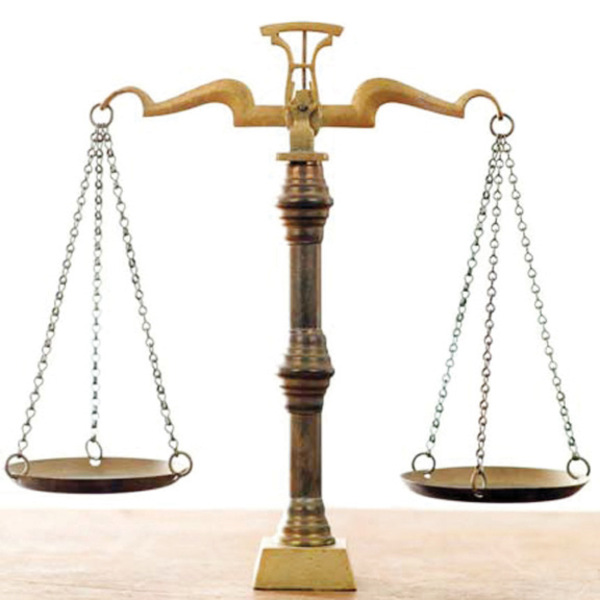Justice for a CJ

Kwara learns a hard lesson over undue process
After three years, Justice Raliat Elulu-Habeeb, sacked Chief Judge of Kwara State, got a reprieve. A seven-man Supreme Court panel in Abuja, on February 18, declared her 2009 sack wrongful and illegal; and ordered her reinstatement.
For the second time in three years, Ilorin, the Kwara State capital, is a grand stage for the slow majesty of the rule of law. The first was the University of Ilorin (Unilorin) 5, the lecturers among the 49 the university authorities dismissed in 2001 for joining the strike called by the Academic Staff Union of Universities (ASUU); but ordered reinstated for lack of fair hearing in 2009. The second is the present case of Kwara chief judge, Justice Elulu-Habeeb: sacked in 2009; reinstated in 2012.
Incidentally, both cases were determined, less on the culpability or otherwise of the victims of arbitrary actions; but more on the refusal of the deciding authorities to follow due process. The Unilorin 5 were not given fair hearing before dismissal; Justice Elulu-Habeeb’s purported sack did not include the input of the National Judicial Council (NJC) which, the Supreme Court ruled, was vital for her hire; and logically should have been vital for her fire.
Why do Nigerian authorities tend to treat their own laws and procedures with contempt? Could it be a natural aversion to due process? Or a tragic carry-over from the decades of military rule? Or just plain impatience with the slow grinding wheel of justice, when a government, even under a democratic dispensation, is expected to dish out sanctions fast and sharp?
From the case of Justice Elulu-Habeeb, it was clear Kwara State, under former Governor Bukola Saraki, only partially followed the provisions of Sections 27(1) and 292(1)(a)(ii)(b) of the 1999 Constitution, regarding the appointment and removal of state chief judges.
Section 27(1) was clear enough: the NJC must recommend the state chief judge before the governor can appoint him after the state legislature had endorsed the nomination. For removal, Section 292(1)(a)(ii) declared that a state governor could remove the chief judge "acting on an address supported by two-thirds majority of the House of Assembly of the state." The Saraki government followed this provision. But it did not follow the corresponding 292(1)(b) that the governor must act on the NJC’s recommendation that the chief judge be removed. Thus, for the action to have stood, the executive should have obtained the NJC consent. That, backed by the two-third majority of the legislature, would have effectively removed the chief judge.
So, why did it not seek the NJC consent? Because it was not confident its complaint against the chief judge was weighty enough? Or because it thought it would take time, and that it was in a hurry to act? The NJC check on state executive-legislative impunity, against a judicial officer, would appear laudable, given this clear Kwara case.
But viewed from the federalist prism, it is clearly anti-federal. To the extent that the NJC is a central agency, outside the state local apparatus, it would appear a foreign busybody, interfering in the appointment and removal of judicial officers, which ought to have been the sole business of the state.
But that is the law as it is; and those who clamour for a true federal constitution would do well to have the NJC issue in mind, no matter how beneficial it appears now curbing the excesses of state authorities, vis-a-vis their relations with the judiciary.
After 13 years of democracy, the political players ought to have weaned themselves from the military-era mentality of tragic haste. The twin judgments from Ilorin, Kwara State, stand as proud monument to justice and loud warning to future dictatorial minds, who would rather go for impunity instead of due process, for whatever reasons or pressures.
Cloud Tag: What's trending
Click on a word/phrase to read more about it.
AGM Professional Services Unilorin Ahman Patigi National Association Of Nigerian Students Sabi Markaz Arabic And Islamic Training Institute, Agege Okoolowo KWASEIC Gwanara Ahmed Mohammed Rifun Mohammed Saidu Rachael Obisesan Baba Isale Senior Special Assistant On Student Affairs Kwara State Government Anilelerin Pius Abioje Frootify 07039448763 Lawal Jimoh Old Oyo Bola Ahmed Tinubu Ileloke Salman Suleiman Albert Ogunsola Harafat E. Mukadam Ridwan Agboola Majlis For Sadakah, Zakat And Waqf Ramat Oganija Gbadeyan Gbadura Yomi Patience Jonathan Millennium Development Goals Razak Atunwa Binta Abubakar Mora Mahmud Babatunde Baker Ibrahim Abduquadri Abikan Onilupeju Of Ilupeju College Of Education Shuaibu Yaman Abatemi Usman TESCOM Khairat Gwadabe Twitter Musa Aibinu Countryside Emerging Leaders Fellowship Baaziki Sulaiman Baba Adini Of Kwara State Freshvine Nigeria Limited Iponrin Olaitan Buraimoh Amos Sayo Doyin Awoyale Abdulrazaq Adebayo Aminu Adisa Logun Aliyu Muhammed Sardauna Saka Balikis Kehinde Sunday Otokiti Amos Justus Sayo Okiki Adanla-Irese Kishira Charles Ibitoye Code Of Conduct Fulani Toun Okewale-Sonaiya Umar Saro Shonga Farm Project SWAN Roheemat Hammed Mansurat Amuda-Kannike Rabiu Kwankwaso Abdulrasheed Na\'Allah Gbenga Adebayo Abdulazeez Arowona Musa Abdullahi Col. Taiwo


